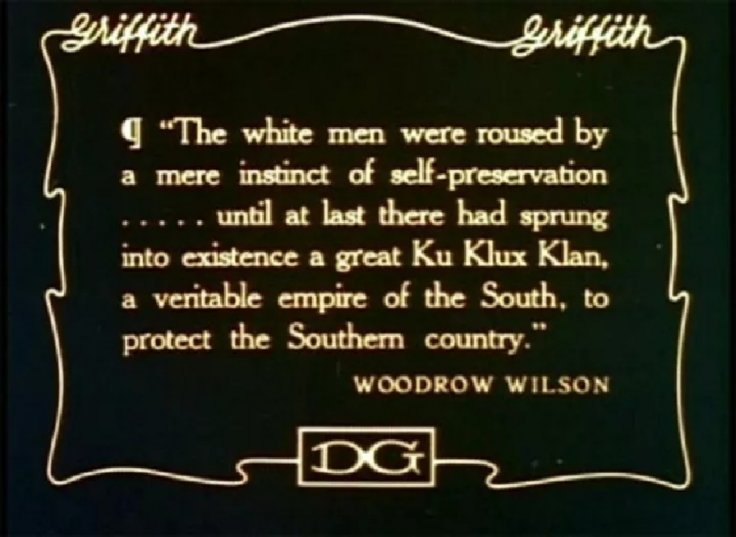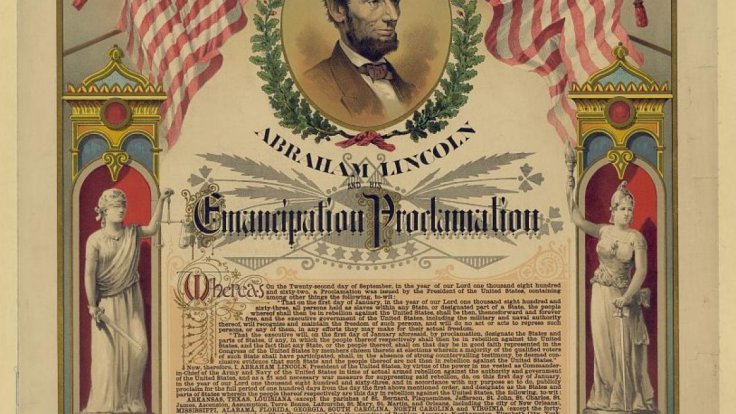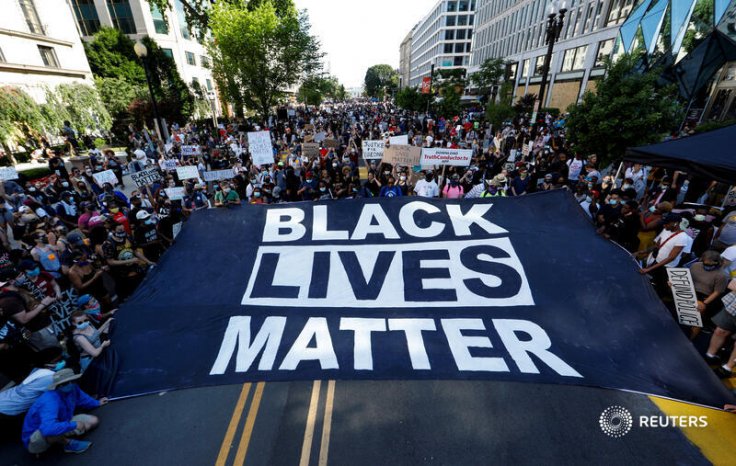Born to a Presbyterian minister in Virginia in 1865, Thomas Woodrow Wilson played significant role in American history as he led the nation during World War I against Germany. A graduate from Princeton University (College of New Jersey in 1900s), he was chosen to be the President of the varsity in 1902.
However, owing to the recent protests by the African Americans in the country, Woodrow Wilson's name started making rounds as one of the worst white Presidents who reintroduced segregation after the war. A lawyer and academic, Wilson served as the 28th president of the United States from 1913 to 1921, when the global nations were gripped in the midst of World War I.
A member of the Democratic Party, Wilson was groomed by a family that was deeply committed to slavery and the Confederacy. He grew up in a Southern state of South Carolina where he had already witnessed the Civil War. Hardly were his fellowmen in South aware of the disbelief Wilson had apparently garnered about the blacks.
Three years after he became the President of Princeton College, his long time political supporter and his mate from Johns Hopkins University Thomas Dixon Jr. published a book – 'The Clansman'. The 1905 book largely boasts about the need for Ku Klux Klan, which was widely criticized for its American White Supremacist belief.
Wilson's book and 'Birth of a Nation'
A decade after Dixon wrote The Clansman, in 1915, cinematographer D W Griffith released his film 'Birth of a Nation'. While it showed freedmen's (blacks) indulgence in vengeful violence mainly to coerce white women into sexual relations, the movie also boasts on the need of Ku Klux Klan that was formed by white individuals in South, to defend themselves against the bad forces, claimed to be the blacks.
The movie allegedly glorified the Ku Klux Klan and called them 'saviors of South' as referred in Wilson's book on American history published 1902. In a picture that was widely shared then, a reader can hardly understand what Dixon or Griffith are trying to show. Here is the picture:

The quote as penned by Wilson in his book and shown in Griffith's movie is not complete, the racist elements of it were chopped. It intends to convey:
"The white men of the South were aroused by the mere instinct of self-preservation....in order to free themselves from the burden that the governments had to bear by the votes of negroes. Their intent was to authorize individuals from North and take over the blacks in South," wrote Woodrow in his book.
Wilson's bias can be clearly understood from his writings as in one of the paragraphs he calls the "men of lowest class" from Italy, Poland, Hungary and South to be "men out of the ranks where there was neither skill nor energy nor any initiative of quick intelligence; and they came in the numbers ... who had given up on their governments, the men whose standards of life and work are such as American workmen had never dreamed of hitherto."
The movie Birth of Nation accuses blacks down South, as it criminalizes them, and further shows how the KKK worked to deprive all the black men from voting or exercising their opinion. Almost all actors in the movie are white men in blackface, subjugating the entire black race, showing the African Americans as uncouth and uncivilized ill-mannered rabble.
Presidential campaign and Wilson's false promise
Wilson had made it his goal to restore the segregation in America while the Republicans were at the peak of their efforts to do the same. He came under criticism from the National Association for the Advancement of Colored People (NAACP) that publicly denounced the movie's appeals to racial prejudice.
After watching it in the White House, Wilson's observation of the film read:"It is like writing history with lightning. My only regret is that it is all so terribly true." What could possibly be so terrible for Wilson? Was he trying to valorize the Klan that was encouraged to kill the blacks down South?

In 1912, the Democratic candidate for president promised fair approach to issues blacks faced, if elected. He wrote a letter to the black church official that read, "Should I become President of the United States they may count upon me for absolute fair dealing for everything by which I could assist in advancing their interests of the race."
However, after he was chosen the President, he decided to expel 15 out of 17 supervisors in federal jobs, and all of them were blacks. This was his first step to re-segregate the blacks from whites, that had never happened before, in any federal office. Wilson also denied the traditional system of appointing African Americans as ambassadors to the posts in Haiti and Santa Domingo.
Owing to Wilson's orders for segregation inside the federal offices, restrooms, tables, cabins, lunch spaces and more avenues were separated using screens that were placed between the white and black employees. This was strongly opposed by Mary Church Terrell, an African American federal employee who threatened the officials of White House that she will publicize the attempt to segregate the federal employees.
After her, W.E.B Du Bois, the sixth black man who made his way into the Harvard, wrote to Wilson in a letter that read, "The federal government has set the colored apart as if mere contact with them were contamination. Behind screens and closed doors they now sit as though leprous. How long will it be before the hateful epithets of 'Nixxer' and 'Jim Crow' are openly applied? [sic]"
Monroe slammed Wilson for betrayal
Du Bois had realised that the man he had supported in election campaign, was after the freedom of blacks, something that was also not acceptable by William Monroe Trotter who edited the militant newspaper, The Guardian – which he had founded to publish details of "propaganda against discrimination."
Monroe along with the National Independent Political League (NIPL) confronted Wilson in his office and told him, "Mr. President, we are here to renew our protest against the segregation of colored employees in the government departments. We had urged to you to undo this race segregation in line with your responsibilities as the President. We had come to terms that such segregation was humiliation to an entire race..."
Reacting to Monroe's rightful question against the segregation, Wilson said, "We are not against the independence and progress of colored men. However, owing to the increased prejudice against them, it will take at least a hundred more years to remove this prejudice. We have to deal with it practically. Segregation is not humiliation, but instead of understanding it as benefit, if you tell people that it is humiliation, they will consider it to be so," he advised.

Monroe was asked to move out of the White House and Wilson went ahead with his ideologies. In the meantime Bois, Trotter and many scholars to this day have called Wilson's move to bring back segregation as one of "the worst attacks on the liberty of African Americans" since emancipation proclamation. In the most scariest of their dreams, the blacks in South wouldn't have thought that their votes to choose Wilson as President would backfire, and they would be forced to isolate themselves as an entire race.
Finally, the President of Princeton University, Christopher Eisgruber has now decided to remove Wilson's name from all school buildings, while the school will be renamed School of Public and International Affairs. In a statement released, Eisbruger said:"These are not the only steps our University is taking to combat the realities and legacy of racism, but they are important ones."
So, the Black Lives Matter is heralding a new introspection across the U.S. and its institutions.









